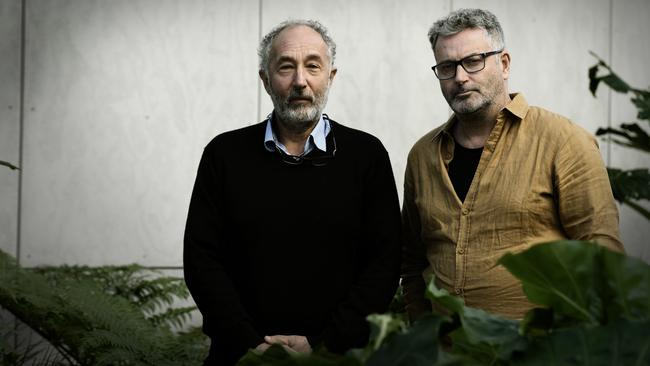Legal system marred by ‘deep and historical’ injustices
JUSTICE should be blind, but your circumstances can make a world of difference if you find yourself in need of legal help.

Lismore
Don't miss out on the headlines from Lismore. Followed categories will be added to My News.
JUSTICE should be blind, but whether you're swimming in money or just scraping by can make a world of difference if you find yourself in need of legal help.
Statistically, your cultural background can also have a disproportionate impact on whether you come into contact with the criminal justice system, and how you're dealt with when you get there.
Both issues are close to the hearts of Barefoot Law principal Mark Swivel and former Lismore Magistrate David Heilpern.
According to a 2018 report from the Australian Law Reform Commission, Aboriginal and Torres Strait Islander adults are just two per cent of the national population but they make up 27 per cent of Australian prison inmates.
The latest Australian Bureau of Statistics report on national prison populations, released in September, found prison populations had reduced in the June 2020 quarter.
Nationally, the average daily number of prisoners was down five per cent to 41,784 but Aboriginal and Torres Strait Islander prisoners accounted for about 29 per cent of that figure.
Mr Swivel said while the issue of Aboriginal incarceration rates "crops up as news", including amid Black Lives Matter protests, it's far from being an emerging issue.
"It's a cast iron social fact that's been there for decades and its causes are deep and historical," Mr Swivel said.
He said the remedy for this was "much deeper and graver than just the criminal justice system responding".
"It starts at school, and it's a question of leadership for all our political parties to take the facts of our history seriously, because there's a straight line … between historical oppression and the reality of indigenous incarceration generally and deaths in custody," he said.
When Mr Swivel launched Barefoot law in mid-2018, it was a one-day-a-week "experiment" run out of Mullumbimby Neighbourhood Centre.
He said the firm charges well below the going rate and a portion of his work is pro-bono.
"We try to catch people who fall between stools, I guess," Mr Swivel said.
"Our community legal centres are terrific but they're so poorly-funded and the reason we started our clinic in Mullumbimby is that locals there couldn't get to one."
His firm is mostly self-sustaining, but Mr Swivel said the model could be feasible, and needed, nationwide.
He said some of his clients "don't suit" the Legal Aid system for various reasons while the service remains "overworked" and "under-resourced".
"Broadly speaking, Australians don't take the right to legal representation as seriously as we should," he said.
"By contrast, in health there's a huge public health system, as there should be, but the commitment that we have to protecting people and their legal rights, we just don't see it the same way. And we should."
Mr Heilpern, who renewed his practising certificate and joined Barefoot Law this year after 21 years on the bench, said "institutional racism" was an impediment to justice.
"The criminal justice system is the least equipped to actually solve any problems of education, of employment, health, family violence, and yet that's where people end up," Mr Heilpern said.
Mr Heilpern said he'd been admiring Barefoot Law from afar for a while before joining its ranks.
"I think it's a great model," he said.
"That, to me, is really what lawyering is about."



